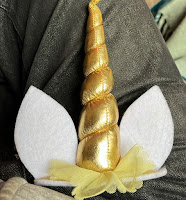Back in the 80s, Auntie Peggy announced one year that what she wanted for Christmas was a new processor. "Word, or food?" we said. She was surprisingly tech savvy, but it was a Kenwood she had in mind for her kitchen. It was about the time that I was reading Maurice Hansen's book "E is for additives"- I had two small children and I was concerned to feed them properly - avoiding E102 [tartrazine yellow food colouring], and knowing E500 was safe [ bicarbonate of soda.]
Not all E numbers were dodgy, but I wanted to be careful about what I was feeding my children. ["E" stands for "Europe" - since 1962 scientists across the continent were ensuring food additives were carefully regulated - there are over 1500 on the 'permitted' list]
40 years on, there's a new kid on the block. Dr Chris Van Tulleken, an associate professor at UCL, has written
a book about Ultra Processed Food. I was amused to see it is published by
Cornerstone Press! [part of the Penguin Group]
CVTs contention is that 60% of the diet of the population of the UK is Ultra Processed Food, [UPF] and it is not good for us; that it is making us obese, and sick, and causing premature deaths; that the production methods harm the environment
A definition
Ultra-processed food is an industrially formulated edible
substance derived from natural food or synthesized from other organic
compounds. The resulting products are designed to be highly profitable,
convenient, and hyperpalatable, often through food additives such as
preservatives, colourings, and flavourings.
I ordered this book from the library in July - and finally I got it last weekend. It needs to go back, there are at least 70 behind me in the queue who have reserved it! But here is my review
I found it hard going - there are interesting stories about how UPF has been developed throughout history - Napoleon III [Boney's grandson] gave a prize to the man who developed margarine from cow's suet, and sheep's enzymes. And Hitler's scientists developing "coal-butter", and other little anecdotes which are interesting and easy to read - but there are loads of pages of chemical formulae and statistics and so many footnotes [sometimes more footnotes on a page than regular text] He covers an awful lot of ground - why choosing a healthy diet is more than sugar, exercise and will power, what UPFs do to our digestive systems, and why the manufacturers are concerned about making a product to generate profits, not to nourish the hungry.
And why the make-up of UPF is designed to make you overconsume. They even admit it in their ads... The first potato crisps[US chips] were thin slices of potato, fried, and sprinkled with salt. But this popular party snack is a million miles from that.
Pringles have about 42% potato content, the remainder being
wheat starch and flours (corn and rice) combined with vegetable oils, an emulsifier, salt, and seasoning. Other ingredients include maltodextrin, dextrose, MSG, disodium isonate, disodium guanylate, sodium caseinate, modified starch, Mono & di glycerides, autolysed yeast extract,artificial flavourings etc etc... Definitely an Ultra Processed Potato!
CVT talks about food labelling - here in the UK we are used to the "Traffic Light" system, and also the HFSS [High fat, sugar,salt] warnings. These are useful - as far as they go. Young parents don't have time, with a fractious toddler in the trolley and another child in tow, to stop and read every label on every packet as they go round the supermarket. The red/amber/green is a helpful, speedy reference.
CVT favours the Brazilian NOVA system, whereby foods are classified into four groups
Group 1 - unprocessed and minimally processed foods - meat, fruit, vegetables, but also flour and pasta.
Group 2 is 'processed culinary ingredients' oils, lard, butter, sugar, salt, vinegar, honey - traditional foods which might be prepared using industrial technology. These tend to be nutrient poor and energy dense, so not the survival part of your diet, but the stuff that combines with group 1 to produce delicious food.
Group 3 -'processed food' - the ready-made mixtures of groups 1 & 2 , usually processed for preservation, like salted nuts, smoked meat, canned fish, fruit in syrup, traditionally made fresh bread.
Group 4 is the UPF, defined as "formulations of ingredients, mostly of exclusive industrial use, made by a series of industrial processes, requiring sophisticated equipment and technology. These processes include fractioning of whole food into substances and chemical modification of these substances" UPF is highly profitable [low cost, synthetic ingredients] and has a long shelf life [chemical preservatives] and convenient, ready-to-eat [minimal input needed from the customer]
The scientists who developed the NOVA scale felt there is a real danger that "these hyperpalatable products are likely to displace freshly prepared dishes from all the other NOVA groups"
CVT tells how when his 3 yr old daughter first saw a box of CocoPops [he had put himself on an exclusively UPF diet as part of his research] she demanded some - pointing out the monkey on the box meant they were designed for children. She had eaten the equivalent of 3 adult portions while he was looking up the nutritional content of said cereal. [once you CocoPop you cant stop?]
He tells of Nestle taking a boat up the Amazon in 2010 to introduce their products to the native tribes. And how adults and children began to crave KitKats etc, even though their resources for purchasing them were very limited. And now diabetes is a serious problem for the Brazilians.
CocaCola's CEO said that because half the world has not yet tasted a Coke, there is a huge marketing opportunity out there. Doctors in the 3rd world weep, because even in remote places you can buy a chilled beverage, but they find it almost impossible to get funding for fridges to keep their life-saving vaccines cool.
Baby formula is a UPF, and for some mothers it is essential [My Mum was ill, and I was weaned on National Dried Milk in the 50s] However in the third world, giving mothers powder to mix, when they have no clean water to make the solution, or to clean their bottles properly, causes hundreds of babies to become ill and die from dehydration of diarrhoea.
CVT is really concerned - UPFs are making us ill, while they are making the manufacturers big profits.
He wants us to urge government to think about the food policies they are making.
He wants us to care for our planet - in Indonesia, an area the size of Greater London, was cleared to produce acres of trees for palm oil crops - with dreadful results for the native wildlife, and affecting the climate.
He wants us to read the labels and ask "Do I recognise this ingredient - would I find that in a domestic kitchen?"
I found the book challenging, and I am being more mindful about my food shopping [not that I am eating very much this week - mostly scrambled eggs and milk till my mouth settles down]
I am aware that cooking and eating habits gave changed enormously since my girls were toddlers - no trips to McDonalds, or 'ping meals' from a microwave or airfryer back then. Now so much peer pressure on children to eat the snacks their friends do - cheap and accessible. It's really hard for young parents
Last weekend I let Rosie and Jess make their own Ice-cream sundaes for dessert- soft scoop ice cream, squeezy strawberry and chocolate sauces, sponge fingers, coloured sprinkles and squirty cream... all UPF by CVTs definition. [In my defence, they also added my home made fruit compôte - made with fruits of the forest and demerara sugar. Not UPF] Now I am wishing I hadn't!
I am going to try and be more disciplined about making my own bread and 'baked goods', as cakes, biscuits and snack foods do seem to be among the worst offenders. And try to get a higher %age of my diet from NOVA groups 1 & 2. But I do not think I can avoid UPF altogether.
Sorry - this has been a very long post. It was and long a complex book!
Is he going over the top with this?
You must draw your own conclusions.



















































